Top Rankings
Lockwood K-12 School District ranks among the top 20% of public school district in Montana for:
Category
Attribute
Diversity
Most diverse schools (Top 1%)
Community Size
Largest student body (number of students) (Top 1%)
For the 2025 school year, there is 1 public preschool serving 387 students in Lockwood K-12 School District.
Public Preschools in Lockwood K-12 School District have a diversity score of 0.45, which is more than the Montana public preschool average of 0.40.
Minority enrollment is 28% of the student body (majority Hispanic), which is more than the Montana public preschool average of 23% (majority American Indian).
Overview
This School District
This State (MT)
# Schools
4 Schools
395 Schools
# Students
1,683 Students
65,251 Students
# Teachers
114 Teachers
4,856 Teachers
Student : Teacher Ratio
15:1
15:1
District Rank
Lockwood K-12 School District, which is ranked within the bottom 50% of all 347 school districts in Montana (based off of combined math and reading proficiency testing data) for the 2021-2022 school year.
Overall District Rank
#283 out of 350 school districts
(Bottom 50%)
(Bottom 50%)
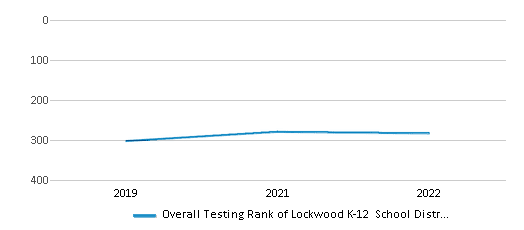
Math Test Scores (% Proficient)
25%
35%
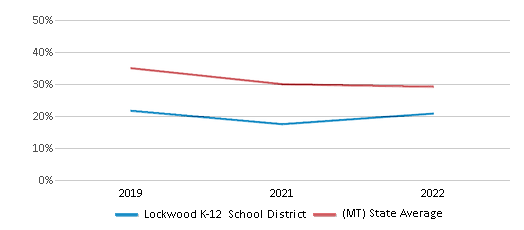
Reading/Language Arts Test Scores (% Proficient)
33%
46%
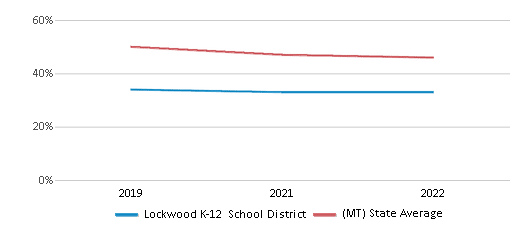
Science Test Scores (% Proficient)
33%
37%
Students by Ethnicity:
Diversity Score
0.45
0.40
# American Indian Students
96 Students
6,505 Students
% American Indian Students
6%
10%
# Asian Students
3 Students
357 Students
% Asian Students
n/a
1%
# Hispanic Students
232 Students
4,243 Students
% Hispanic Students
14%
6%
# Black Students
6 Students
459 Students
% Black Students
n/a
1%
# White Students
1,221 Students
50,046 Students
% White Students
73%
77%
# Hawaiian Students
1 Student
111 Students
% Hawaiian Students
n/a
n/a
# Two or more races Students
124 Students
3,530 Students
% of Two or more races Students
7%
5%
Students by Grade:
# Students in PK Grade:
9
1,059
# Students in K Grade:
155
11,907
# Students in 1st Grade:
119
10,512
# Students in 2nd Grade:
104
10,623
# Students in 3rd Grade:
106
9,606
# Students in 4th Grade:
118
9,406
# Students in 5th Grade:
115
8,220
# Students in 6th Grade:
129
3,620
# Students in 7th Grade:
115
158
# Students in 8th Grade:
157
140
# Students in 9th Grade:
152
-
# Students in 10th Grade:
134
-
# Students in 11th Grade:
153
-
# Students in 12th Grade:
117
-
# Ungraded Students:
-
-
District Revenue and Spending
The revenue/student of $12,664 in this school district is less than the state median of $15,263. The school district revenue/student has declined by 20% over four school years.
The school district's spending/student of $15,900 is higher than the state median of $15,352. The school district spending/student has declined by 20% over four school years.
Total Revenue
$21 MM
$2,285 MM
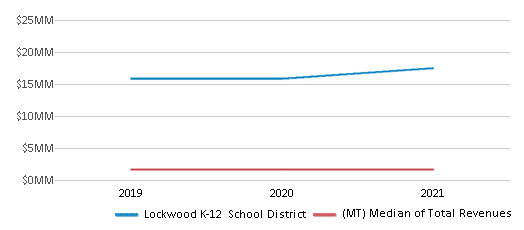
Spending
$27 MM
$2,298 MM
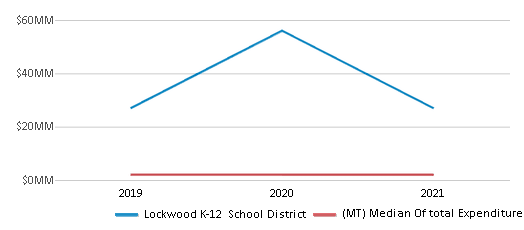
Revenue / Student
$12,664
$15,263
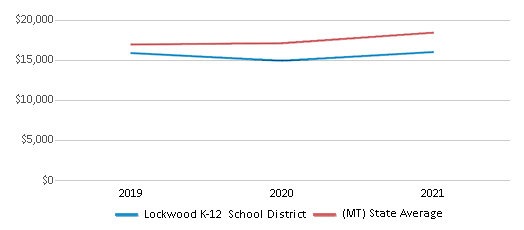
Spending / Student
$15,900
$15,352
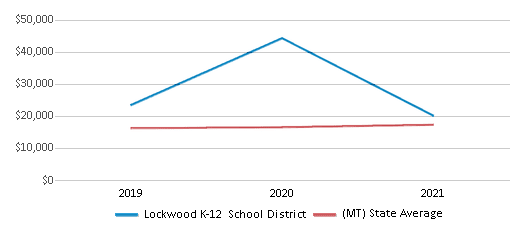
Best Lockwood K-12 School District Public Preschools (2025)
School
(Math and Reading Proficiency)
(Math and Reading Proficiency)
Location
Grades
Students
Rank: n/an/a
1932 Us Highway 87 E.
Billings, MT 59101
(406) 252-2776
Billings, MT 59101
(406) 252-2776
Grades: PK-2
| 387 students
Recent Articles

Year-Round Or Traditional Schedule?
Which is more appropriate for your child? A year-round attendance schedule or traditional schedule? We look at the pros and cons.

Why You Should Encourage Your Child to Join a Sports Team
Participating in team sports has a great many benefits for children, there is no doubt. In this article you will learn what those benefits are.

White Students are Now the Minority in U.S. Public Schools
Increasing birth rates among immigrant families from Asia and Central and South America, combined with lower birth rates among white families, means that for the first time in history, public school students in the United States are majority-minority. This shift in demographics poses difficulties for schools as they work to accommodate children of varying language abilities and socio-economic backgrounds.





